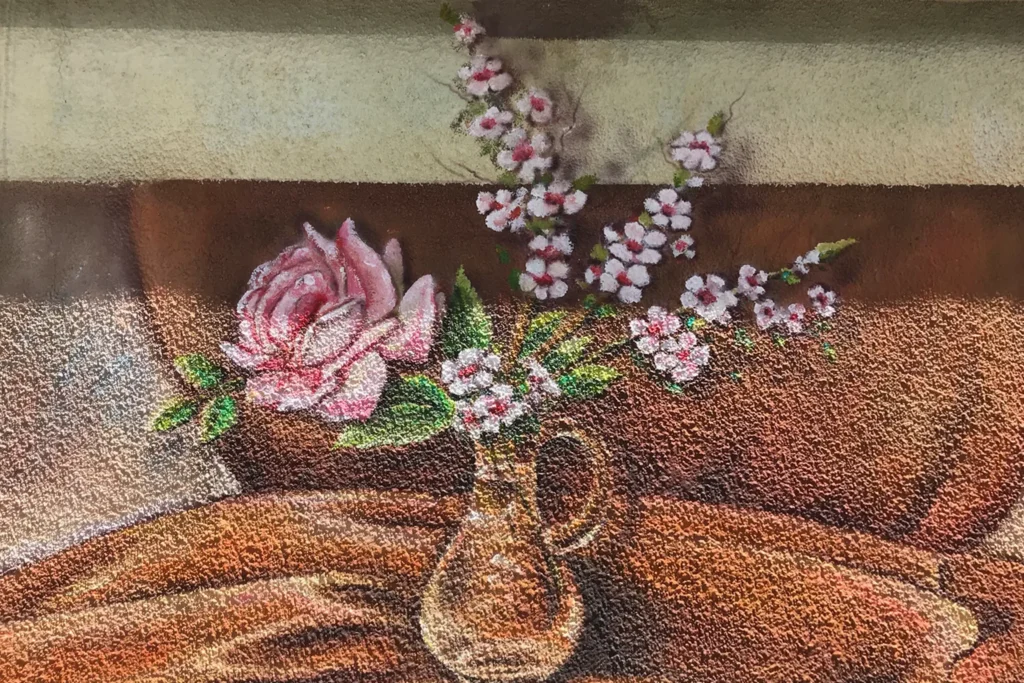Many of us may have had the privilege of receiving a compliment from another person at some point in our lives. Perhaps it was a warm and familiar softness gifted to us by someone in our inner circle, or maybe it was a comment from a complete stranger that left us feeling elated and seen. Compliments can be a lovely way to connect with another person, and when they are offered from a spacious place they can be incredibly affirming and validating. Compliments are meant to be generous offerings of connection and recognition. A heartfelt compliment often leaves one feeling empowered and light, even if just for a few moments.
They speak of openness and courage; the courage to speak up, the courage to take a leap of faith and share some part of yourself with another. In many ways, compliments are relational. They are reflections of the voice of the person sharing the compliment, but they are designed to centre the recipient. I imagine them as little bubbles of light and love that gently drift toward the recipient, and pop open, enveloping them in the warm glow of acknowledgement and connection.
From a collectivist lens, compliments often focus on honouring and uplifting another person. They are frequently very enthusiastic celebrations of another human’s light and presence. They often involve friends, family and communities highlighting a quality, strength, or gift someone holds with excitement and appreciation. I have been noticing that compliments do not always play out in this same expansive way in individualistic cultures.
I recently had an experience where someone complimented me, and instead of feeling seen and appreciated, I had a rather negative visceral reaction to the exchange.
The experience, at first glance, seemed innocent and innocuous. Someone referenced my clothing and said, “this is my favourite look of yours”. This same person had previously referenced my makeup in this same manner, excitedly exclaiming that my makeup that day was her favourite look of mine! There is no doubt in my mind that these compliments were offered from a place of kindness, but what struck me was the deeply rooted individualism held within these phrases.
I had to sit with these compliments for a little while to wholeheartedly figure out why these seemingly lovely sentiments left me feeling somewhat uneasy and unsettled. What I realized was that I did not like these compliments because they didn’t really seem to be about me at all. I didn’t receive them as genuine moments of celebration; they had an undertone of judgement and privilege that reminded me of the bigger systemic issues that BIPOC folks face daily.
Why is it necessary for me to know how someone else would rank my appearance, outfits, or makeup based on their own personal preferences? Why should that be relevant to my experience of myself? The truth is, it isn’t! I wear things that are accessible and sit well with me, and I move through the world in ways that feel good for me. As long as I am not negatively impacting anyone, why should what you think of my appearance or attire be the centre of my world?
At best, comments like these, that come from an individualistic lens, one that often prioritizes Whiteness, are insensitive and full of misplaced energy. At worst, they are harmful ways of reminding me that we are different, and that someone else’s experiences, feelings, and thoughts are more important than mine.
These compliments were not about me. They were about the speaker. They were about centering her voice, and privileging her preferences, and more importantly they were about the inherent and sometimes unconscious entitlement that folks grounded in individualism often feel to assess the existence of people of colour in accordance with their own desires, needs, and views. It is very othering and very alienating to be viewed, not as a stand-alone, whole and complex being, but rather as an extension of someone else’s lens or preferences.
I imagine some folks might think, this is an overstatement, or an overreaction, and I want to be clear, this is not on par with other levels of harm, but these comments are little bits of inflicted pain, that can be avoided. They are also emblematic of bigger power differentials that exist in society that marginalize and harm racialized communities daily.
This is the part that I find most hurtful: they can absolutely be avoided. We are all human and imperfect and we will always inevitably all wound one another, but there are some hurts that we can collectively work toward minimizing, especially after they are brought to our attention and especially after they have bubbled up to the surface of conscious awareness.
Receiving a compliment in this othering way created the exact opposite affect of its intention. I do not think this person deliberately wanted to wound me, and I can hold compassion for that truth, but unfortunately, that does not diminish the reality of the pain. It was a hurtful experience that stung.
I did not feel celebrated; I felt assessed. I felt as though I was being evaluated by a fashion critic dissecting a runway look for closer analysis. I felt on display, and I instantly felt distant from the person offering me the compliment.
This exchange brought up many other questions for me. Where does that type of assessment and othering stop? It doesn’t stop! There is so much violence directed at Black, Indigenous people and all POC, and although some may not call these types of comments violence, and although they certainly are not the same as the overt violence many BIPOC folks face, it is still, yet another reminder that in most spaces, the existence of BIPOC folks is not fully their own.
The fact that people want to hold visions of themselves through the lens of their own experience and not through someone else’s lens is a very natural human boundary. Of course, I want to own my own story and experience. What becomes painful for folks, I think, is the knowing that some people give themselves permission to exist in expansive ways while directly and indirectly limiting another’s right to that same truth.
I want to gently invite you to tune inward as you read these words. If you are folding in on yourself, or going to a place of shame, please let these words be a gentle calling-in, with open arms, to the possibility a different way of relating that can be supportive for us all collectively.
I would like to gently share some ways for you to gauge your own relationship with compliments. I think the compliments that might sit well with people are those compliments that come from an authentic desire to share a wholehearted moment of connection and celebration without the expectation of anything in return.
Perhaps ask yourself, what is the purpose of this compliment? Am I sharing a genuine piece of my heart and feelings with someone, or is there some layer of judgement, evaluation or comparison that is not helpful to the situation, or to this person? Is there some need within me that is not being tended to, and is my compliment stemming from that unmet need, or is it free of my own projections and desires? For example, do I personally feel unseen and invalidated in this moment (a reality which may impact your mindfulness about the space you are taking up), and am I looking for support from another person, or do I simply want to appreciate another human being for a moment of two? I would invite you to get curious about how individualism, and sometimes toxic individualism can play out in all arenas of life, and consider the harm it may be causing in your own life. I would also gently invite you to honour and celebrate the part of you that wants to connect with a fellow human being, and perhaps allow that part to blossom and lead the way to touching another person’s heart with tenderness.
I will end on this note of hope. I think this story might help highlight how connection is often the foundation of every meaningful interaction. I hope it resonates with you. I was walking home from school the other day and along the way I saw a fellow student walking towards the school, white coat in hand. We made eye contact and said hello to each other, and she kindly offered me a compliment that felt free and unencumbered by any sort of negativity. She simply said, I love your dress, and I simply responded, thank you. We exchanged gentle smiles and then continued walking toward our respective destinations. This beautiful, brief exchange filled me with airy lightness and joy. It was a moment of connection and recognition of each other’s presence that felt respectful and full of positivity. The compliment was just the bonus, what really felt great was the fact that we both took a moment to pause and acknowledge each other- it became especially meaningful because she was a Black women. I think two racialized people acknowledging each other is a powerful source of inspiration and celebration in and of itself. It felt whole and light. My internal compass felt settled and pointing in the right direction- toward strength and expansiveness – a bubble of bursting, lingering light that reminded me of the power of human connection, and left me feeling appreciated, seen, and connected to my many layers.


